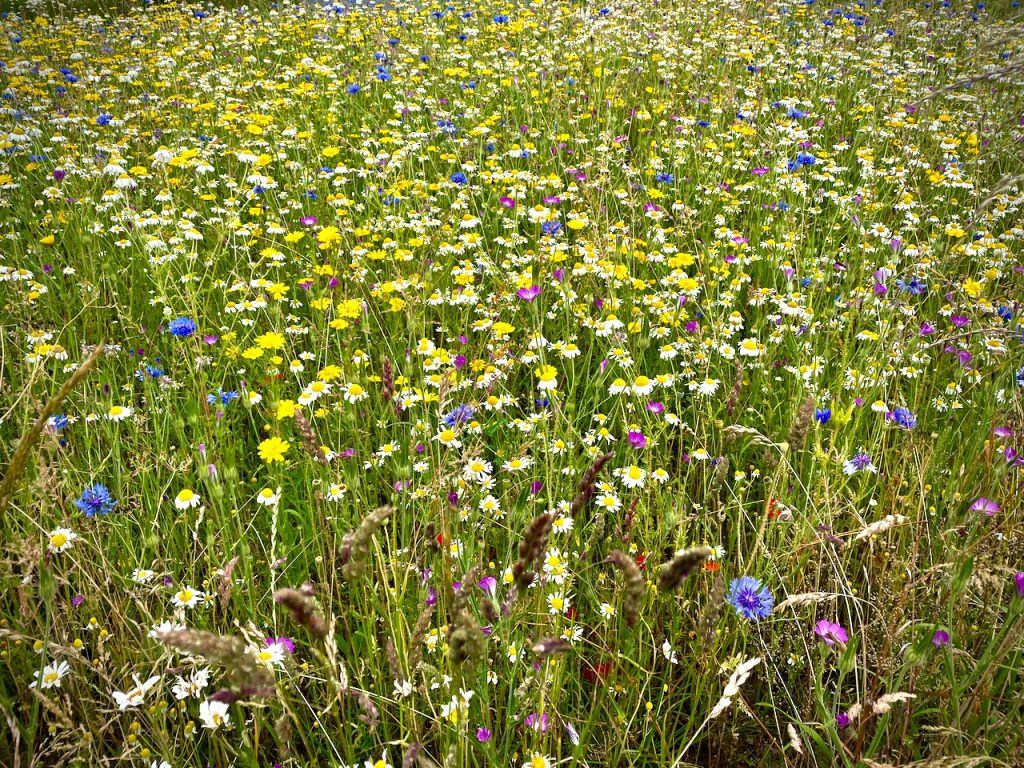It’s not too late to stop the decline
Recently five of the UK's nature agencies called for more investment in nature and for that investment to be made sooner rather than later. The report, by Natural England, Natural Resources Wales, NatureScot, Northern Ireland Environment Agency and the Joint Nature Conservation Committee, recommends that businesses, organisations, governments, and cities implement a nine-point plan by 2030 to achieve a Nature Positive UK by 2030.
The joint report shows that 'achieving nature commitments will deliver huge benefits to human health, wellbeing and our economy.' This latter point should be of particular interest to national governments given the current economic situation. The problem is likely to be that these changes may require significant changes across society 'in the way we protect, value, use and engage with nature.'
The nine points highlighted in the report were,
Those of us who already do our bit for nature by feeding wildlife and providing a suitable habitat within our gardens may be puzzled by what seems to be the emphasis on "protected areas" within this list. Indeed, there is an urgent need to "ensure wildlife thrives" everywhere, not just within protected areas? One interpretation of this is that governments will focus on these protected areas while charities, like the RSPB and The Wildlife Trusts, will need to focus on everywhere else.
At least NatureScot Chief Executive, Francesca Osowska, said, "It is everyone's responsibility to be nature positive. We know the twin crises of climate change and nature loss are inextricably linked – we do both or do neither’. And Joint Nature Conservation Committee Chairman, Professor Colin Galbraith, added, ‘This is a key year for nature, climate change and for our future wellbeing. This report makes a key contribution by showing how we can all help achieve a nature positive world. The report highlights a range of case-studies from across the UK that demonstrate how we are already helping nature recover. Whilst these examples show what is being done, everyone can play a part in future, helping to achieve a nature positive world by 2030, every contribution counts!’
It is good to see the work and commitment of us naturalists being recognised, and long may that continue. It is true that this report seems to be focused on reserves and large areas but, as we all know, our gardens equate to 433,000 hectares, or a little over a fifth of the size of Wales. This is four and a half times larger than our National Nature Reserves. That means together we can do an awful lot of good if we protect the wildlife in our own back yards. We now need to see some serious commitment and action on the part of the government, as together we can stop the decline.
(c) Phil Pickin
See the full report here
The joint report shows that 'achieving nature commitments will deliver huge benefits to human health, wellbeing and our economy.' This latter point should be of particular interest to national governments given the current economic situation. The problem is likely to be that these changes may require significant changes across society 'in the way we protect, value, use and engage with nature.'
The nine points highlighted in the report were,
- Ensuring wildlife thrives within protected areas on land and at sea.
- Better conserve wildlife habitats outside protected areas, in particular those areas identified as parts of nature networks or as important blue/green infrastructure.
- Investing in habitat restoration and creation to strengthen nature networks that deliver for biodiversity and climate change.
- Ensuring outcomes for nature are integrated in development plans on land and at sea.
- Tackling atmospheric and diffuse water pollution, especially from nitrogen and ammonia.
- Developing the market for green finance.
- Deploying nature-based solutions for climate change mitigation by default.
- Developing the UK's evidence base so that it is ready to support the larger, transformative changes underway.
- Adopting targets to become nature positive.
Those of us who already do our bit for nature by feeding wildlife and providing a suitable habitat within our gardens may be puzzled by what seems to be the emphasis on "protected areas" within this list. Indeed, there is an urgent need to "ensure wildlife thrives" everywhere, not just within protected areas? One interpretation of this is that governments will focus on these protected areas while charities, like the RSPB and The Wildlife Trusts, will need to focus on everywhere else.
At least NatureScot Chief Executive, Francesca Osowska, said, "It is everyone's responsibility to be nature positive. We know the twin crises of climate change and nature loss are inextricably linked – we do both or do neither’. And Joint Nature Conservation Committee Chairman, Professor Colin Galbraith, added, ‘This is a key year for nature, climate change and for our future wellbeing. This report makes a key contribution by showing how we can all help achieve a nature positive world. The report highlights a range of case-studies from across the UK that demonstrate how we are already helping nature recover. Whilst these examples show what is being done, everyone can play a part in future, helping to achieve a nature positive world by 2030, every contribution counts!’
It is good to see the work and commitment of us naturalists being recognised, and long may that continue. It is true that this report seems to be focused on reserves and large areas but, as we all know, our gardens equate to 433,000 hectares, or a little over a fifth of the size of Wales. This is four and a half times larger than our National Nature Reserves. That means together we can do an awful lot of good if we protect the wildlife in our own back yards. We now need to see some serious commitment and action on the part of the government, as together we can stop the decline.
(c) Phil Pickin
See the full report here



